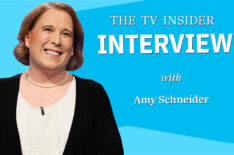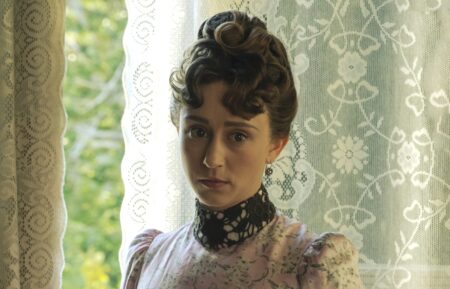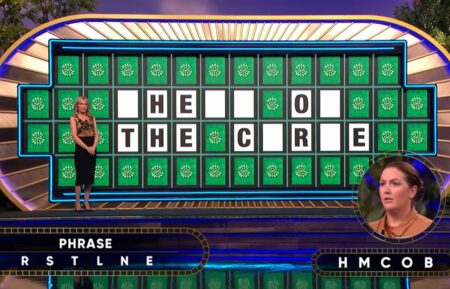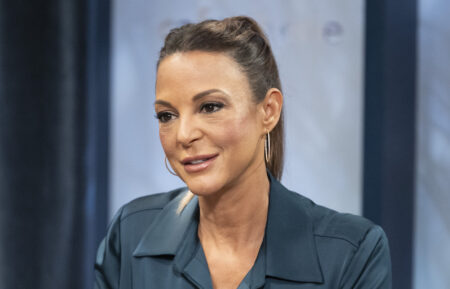‘Jeopardy!’ Host Ken Jennings Talks James Holzhauer ‘Rivalry,’ Game Strategies & More
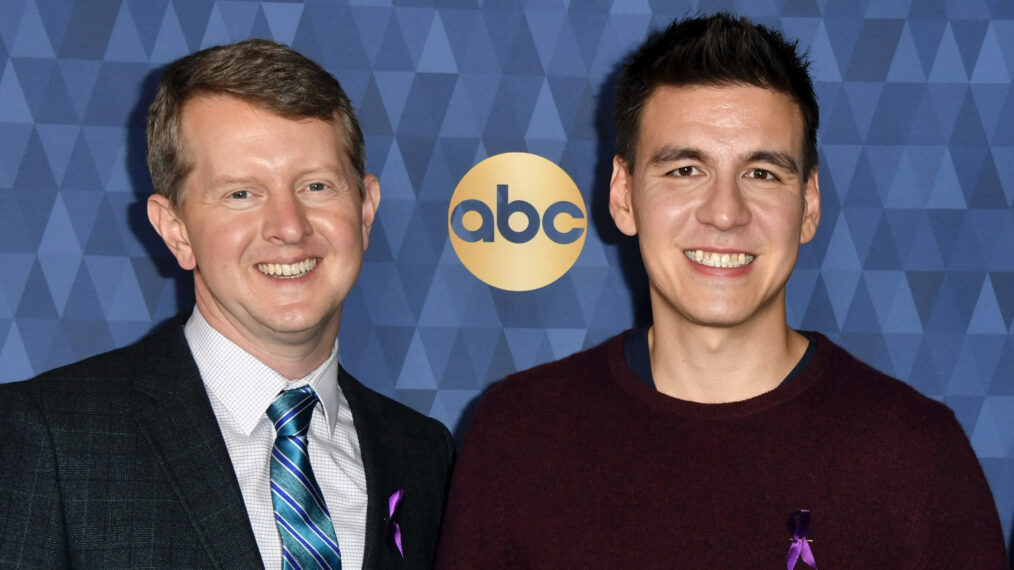
Ken Jennings says his Jeopardy! rivalry with “villain” James Holzhauer is all for show.
In a new episode of Who’s Talking to Chris Wallace (streaming now on Max), host Chris Wallace asks Jennings about his on-screen feud with the Jeopardy champ. Jennings says that Holzhauer intentionally created his villain persona like one would in pro wrestling.
“Am I crazy or is there a bit of an edge in your rivalry with James Holzhauer or Jeopardy James? It seems like there’s a little bit of an edge there,” Wallace asked the game show host.
As Jennings replies: “The thing you have to understand about James is, he decided at one point in preparing for the show that Jeopardy needed a villain. He’s a pro wrestling fan. And he understands that it makes a game exciting when the audience has a rooting interest. And he puts on this persona as an over-the-top, larger-than-life villain. I think in real life we get along great. So for TV, we are mortal Jeopardy enemies, and he likes playing that up.”
Bringing up betting strategy for Daily Doubles and Final Jeopardy, Jennings said Holzhauer has had a big impact.
“This is the thing that James Holzhauer really changed about the game you know, he brought a sports gambler sense of analytics,” Jennings explains. “He had run the numbers and realized that Daily Doubles historically have like a very high completion percentage, like 80 percent conversion on Daily Doubles. Whereas Final Jeopardy is much harder, 50 percent. So what you want to do is get your chips on the table for those Daily Doubles, find them at all costs and make big wagers then, so the game is put away later.”
Wallace then noted his confusion over some Daily Double bets. “One thing I never understand about the Daily Double is somebody is behind. And now it’s the Daily Double and they could take the lead and they don’t take the lead,” he says. “They don’t bet, and it always strikes me that you got to go into Final Jeopardy in the lead because if, if you don’t know the answer, you’re probably gonna lose anyway. But if you do know the answer with the lead, you can’t lose.”
“In general, I think you’re right. People bet too conservatively, particularly on Daily Doubles, and I think it’s because they’re not used to that sum of money,” Jennings replies. “You have to ignore the amount of money. This is house money right now. These are numbers on a board, you got to do the mathematically correct thing, and not what feels like a safe financial decision.”
The duo also discusses Jennings’ relationship with the late Alex Trebek, whom he and co-host Mayim Bialik replaced after he died of cancer in 2020. Wallace said there is no beating Trebek as the greatest Jeopardy host, but said Jennings could be the show’s greatest-ever contestant.
“In his memoir, the late Alex Trebek talks about your streak and specifically the day after 74 victories that you lost. I have to say, you’re great. I think you’re a great host. But Alex Trebek, if you were the GOAT of contestants, he was the GOAT of hosts. How close did you and Alex become?” Wallace asks.
“The funny thing is, the contestants on Jeopardy are kept so far away from the host or anybody else who might know game material it’s for, it’s for legal reasons. You know, it’s a federal crime…,” he says, as Wallace chimes in, “Right. Like the quiz show scandal of the ’50s.”
“Exactly. It’s now a federal crime to rig Jeopardy,” Jennings continues. “So we’re very careful. But the fact is, if you’re on the show for 74 times, which I recommend, by the way, you do kind of get the sense of Alex and he was clearly enjoying having a sidekick for the first time in 20-odd years of Jeopardy. This was new territory for them, and he was enjoying it.”
“I really started to appreciate watching him up close, and the grace with which he hosted that show,” he adds. “Because he made it look so easy that I don’t think the audience knows how difficult it is to host Jeopardy. You’re doing everything the players are, but you’re also contextualizing it for the audience. And I think the only reason I can, you know, I’ll never be Alex, but the only reason I can even approximate it is because I got to watch the best in the business do it for almost 40 years.”
See more of Jennings’ interview with Wallace in the episode, streaming now on Max.
Who’s Talking to Chris Wallace, Fridays, Max
From TV Guide Magazine
How 'Countdown' Recruited Jensen Ackles to Go Full 'Die Hard'
Countdown boss Derek Haas talks creating the character around Ackles, and the cast teases the “Avengers”-like team of the crime thriller. Read the story now on TV Insider.

